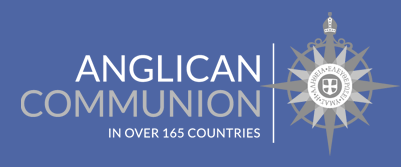Current office and location
Archbishop of Nova Scotia and Prince Edward Island
Metropolitan of the Ecclesiastical Province of Canada
Halifax, Nova Scotia
List of ecclesiastical offices held
- 2017-present: Metropolitan, The Ecclesiastical Province of Canada
- 2014-present: Diocesan Bishop, Diocese of Nova Scotia and Prince Edward Island
- 2013-2014: Coadjutor Bishop, Diocese of Nova Scotia and Prince Edward Island
- 2008-2013: Suffragan Bishop, Diocese of Nova Scotia and Prince Edward Island
- 2003-2008: Archdeacon, Fort Sackville Region (NS & PEI)
- 2002-2003: Regional Dean, Fort Sackville Region (NS & PEI)
- 1996-2008: Rector, Parish of St. John the Evangelist, Sackville (NS & PEI)
- 1993-1996: Regional Dean, Cape Breton Region (NS & PEI)
- 1991-1996: Rector, Parish of Sydney Mines with Baddeck (NS & PEI)
- 1986-1991: Rector, Parish of Smith’s Sound (C. Nfld.)
- 1981-1986: Catechist/Deacon/Rector, Parish of Twillingate (C. Nfld.)
Dates of ordination as deacon, priest and bishop
- Deacon: May 17 1981 – Diocese of Central Newfoundland, The Rt. Rev. Mark Genge
- Priest: November 1 1981 – Diocese of Central Newfoundland, The Rt. Rev. Mark Genge
- Bishop: June 29 2008 – Diocese of Nova Scotia and Prince Edward Island, The Most Rev. Bruce Stavert, chief consecrator
Please describe ministry accomplishments that you wish to share with those voting in this election
There are two times of accomplishment that have contributed to and that have shaped me.
The first was the twelve years I spent as rector of St. John the Evangelist Parish in Sackville Nova Scotia. When I arrived in the parish, there was a developing plan to move from a three church suburban parish to three separate parishes. This was to meet the needs of a growing population. As we moved through this process, over a four year period, we had to wrestle with what needed to be maintained and how to embrace the possibilities for ministry which a new structure would provide us. It was a time when personal relationships amongst the three congregations were challenged. By the time we became a new parish (in a building that was 172 years old), we had begun to clarify what our goals were.
The first years in the new configuration were formative, not only for a strategic plan but in the fundamental question of “how do were serve God in this place?” The growth in the parish involved creating differing opportunities for worship using the breadth of Anglican tradition, using our buildings in creative ways and striving to develop leaders and building relationships within the parish and with the wider community. This was important in a parish with one church building but four distinct congregations and in a community with a highly mobile population. The relationship building involved how I related to parishioners, how we identified and empowered other leaders in the congregations and how we created opportunities to strengthen and deepen relationships between parishioners.
The second has been the work I have been involved with over the past five years as diocesan bishop in Nova Scotia and Prince Edward Island. A time of sabbatical study just prior to becoming diocesan bishop, gave me time to reflect on how I saw God’s mission being enacted at this point in time and in this place. I recognized that we could not continue to function as we had been and that we had to take seriously the call to “proclaim by word and example the good news of God in Christ” in the midst of a culture going through profound change. What does this mean? First of all it requires a highlighting that we are people whose role is to proclaim and live into God’s kingdom, not just to be inheritors or custodians of past ministries and to actually provoke the conversation at every opportunity regarding where we see God’s mission reflected in our common life. It means identifying and training people, both lay and ordained, to lead in ways that are missional. It also means calling the church to discernment at every turn because we are still figuring out what it means to respond to the leading of the Spirit in this moment. It is also about seeing the changes we are going through and the ones we are choosing, as opportunities not disasters and above all it is about fostering a sense of hope in a culture which too often cannot identify hope. I said early on in my ministry as a diocesan bishop that I did not see my role as “saving the church”, but instead trying to be faithful to God’s dream which is more than “we can ask or imagine.”
Please provide any personal information that you would like to share
I have excellent communication skills. I enjoy preaching. I believe that I proclaim the gospel in ways that are accessible, hopeful and meaningful. I am a discerning listener and I have a relaxed manner with people. I am experienced in many aspects of administration. For 28 years as a priest, I ministered in rural, small town, and suburban settings. I am grateful for what the people in these communities shared with me about their life in Christ. These experiences taught me to value the different ways that our church lives out its ministry and service. I find great joy in sharing the everyday events in people’s lives and seeing these moments as a part of our life in God. I appreciate these moments of pastoral connection. I have found in 10 years of episcopal ministry that pastoral care and contact is lived out in a different way. It is not centered in any one community of faith but in a constantly changing series of encounters.
The Anglican Church has always been a part of my life. It has been my home: the place where I have been formed, challenged, comforted and called to develop the gifts I have been given. It is the place where I have encountered and been shaped by the bible. I appreciate the strengths of both traditional and contemporary forms of worship. I love this church, although I sometimes weep for the way we fail to live out Jesus’ vision of God’s kingdom. I have enjoyed the variety of team ministries that I have been a part of over the years and feel that I work best in situations where the team nature of the ministry is the strength.
I enjoy the richness, grace and life of worship and fellowship with local expressions of the church and in the larger gatherings of the whole diocese. I am a person of prayer, although my prayer life has taken many different forms over the years. I have kept myself challenged by reading current books about the church and culture, the life of faith, the emergent church and congregational vitality. I try to attend at least one continuing education event each year. I read these materials from the perspective of a great attachment to the traditions of our church but also with a great desire for the congregations of our diocese to be as healthy as possible amidst a constantly changing culture. Strength in the midst of what often seem to be chaotic times comes from the interludes of quietness for prayer and scripture and the exchange of ideas with others who are passionate about the Gospel.
I seek to maintain healthy collegial relationships with archdeacons, regional deans, priests, deacons, and lay leaders in our diocese and in the parishes. I appreciate that different people discern the working of God in different ways, and that there are many people, both lay and ordained, in our church with great gifts of insight and leadership.
I find renewal and joy in time spent with my wife Marianne, with whom I have shared the last 35 years of life, in the challenges and achievements of our adult children, in walking, gardening, reading, woodworking, cooking and sharing food.
Please provide a statement of your vision of the role and ministry of the Primate
I believe that the key element in the role and ministry of the Primate is found in the first item in the list of the Primate’s duties in Canon 3: “to lead the Anglican Church of Canada in discerning and pursuing the mission of God”. The Primate needs to be a person of prayer and a person who will help the church to discern which among the many options and opportunities the church should be following at this point in time in order to be faithful to God’s call. Discernment requires the traditional disciplines of the church: prayer, the study of scripture, worship and patience. As we are fond of saying in our diocese, “Discernment takes the time it takes.” It can’t be shoehorned into the agenda we set. The Primate’s role is then to promote and embody the mission which has been discerned. The Primate has a relatively small scope of authority within the structure of the Anglican Church of Canada, however the Primate can set the ‘tone’ for the church.
The Primate must maintain and strengthen the relationships within our church and with our partners. The Anglican Church of Canada not only covers a vast amount of geography, it includes people with very different experiences of faith and life. Our church is alive in isolated Indigenous communities and urban areas, growing suburban communities and areas of rural depopulation, established colonial era congregations and fresh expressions of church. Being church in so many ways can lead either to a feeling of being fractured or a sense in which we might use our varied experiences to serve one God with a common purpose. While most of the work, in providing some kind of connections for all of these varied ways of being church falls to dioceses, the national church and the Primate in particular, can be a focus of unity (not uniformity)!
One of the areas where relationships need continued attention is in the ongoing response to the calls to action from the Truth and Reconciliation Commission and the development of a self-determining Indigenous Church within the Anglican Church of Canada. The Primate is the face of what we as church want to model for the world. Within the church, we disagree about a lot of things. Holding different points of view while still living out of God’s love, is a witness which the wider world needs to see. The only way we will be drawn together is by being drawn higher. The Primate has a role in reminding us of what our best can be.
As chief executive officer, the Primate must provide effective leadership within the structures of the church. We cannot cut or restructure ourselves to health and vitality. We do need to have a structure which supports God’s Mission but I have learned in diocesan ministry that decisions about structure need to be driven by that missional imperative and not by financial expediency.
While the primate must uphold all of the Marks of Mission, I am convinced that at the moment we need to emphasize the first two. This does not mean ignoring the others but appreciating that without concentrated effort and focus on “Proclaiming the Good news of the Kingdom and teaching, baptizing and nurturing new believers”, we will not have the ability (resources or people) to respond to human need, transform unjust structures and safeguard, sustain and renew the life of the earth. We have to be unashamed in speaking of God’s vision for the world in language and through media that people understand. The discordancy between the Kingdom of God and the consumer driven North American culture means that the Primate must “speak and write prophetically to the Anglican Church of Canada, and on behalf of the Anglican Church of Canada to the world…”


